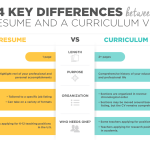Creating a strong resume is essential for job seekers. A resume is often the first impression a potential employer will have of you, so it needs to be clear, concise, and professional. Here are some top tips to help you craft a resume that stands out.
[quads id=12]
[quads id=3]
Keep it Simple and Clear
- Layout: Use a clean, simple layout. Avoid using too many fonts, colors, or graphics. Stick to a professional and readable format.
- Length: Try to keep your resume to one or two pages. Employers often spend only a few seconds scanning each resume.
Tailor Your Resume to the Job
- Customization: Adjust your resume for each job application. Highlight the skills and experiences most relevant to the job you’re applying for.
- Keywords: Use keywords from the job description. Many employers use software to screen resumes, so using the right terms can help yours get noticed.
[quads id=12]
[quads id=3]
Start with a Strong Summary
- Introduction: Begin with a brief summary that highlights your most important qualifications. This should be a few sentences that capture who you are and what you bring to the table.
- Impact: Make sure your summary reflects your career goals and how they align with the position you’re applying for.
Focus on Achievements, Not Just Duties
- Achievements: Rather than listing job duties, focus on what you achieved in each role. Use quantifiable results whenever possible (e.g., “Increased sales by 20%”).
- Impact: Show how you made a positive impact in your previous positions. This demonstrates your value to potential employers.
Use Action Verbs
- Language: Start each bullet point with a strong action verb (e.g., “managed,” “developed,” “designed”). This makes your resume more dynamic and engaging.
- Variety: Avoid repeating the same verbs. Use a variety of action words to describe your experiences and accomplishments.
Highlight Your Skills
- Skills Section: Include a section that lists your key skills. Make sure these align with the job requirements.
- Soft and Hard Skills: Highlight both soft skills (e.g., communication, teamwork) and hard skills (e.g., technical abilities, software proficiency).
Education and Certifications
- Education: List your educational background, including degrees and institutions. Mention any honors or relevant coursework.
- Certifications: Include any certifications or professional development courses that are relevant to the job.
Include Volunteer Work and Internships
- Experience: Don’t overlook unpaid experiences like volunteer work or internships. These can demonstrate your skills and commitment.
- Relevance: Include these experiences especially if they are relevant to the job you are applying for.
Use Numbers and Metrics
- Quantify: Whenever possible, quantify your achievements. Numbers catch the eye and give concrete evidence of your abilities (e.g., “Reduced costs by 15%”).
- Context: Provide context for your achievements to help employers understand the scope of your work.
Proofread and Edit
- Accuracy: Ensure there are no typos or grammatical errors. A clean, error-free resume shows attention to detail.
- Review: Have someone else review your resume. A fresh pair of eyes can catch mistakes you might have missed.
Contact Information
- Details: Include your full name, phone number, email address, and LinkedIn profile (if you have one).
- Professional Email: Use a professional email address. Avoid using nicknames or non-professional email accounts.
Keep Formatting Consistent
- Consistency: Use the same font and formatting throughout your resume. This makes it easier to read and looks more professional.
- Alignment: Make sure your text is properly aligned. Check that bullet points and headers are consistent in style and format.
Avoid Clichés and Buzzwords
- Originality: Avoid overused phrases like “hard-working” or “team player.” Be specific about your skills and experiences.
- Specificity: Use precise language that clearly describes your accomplishments and skills.
Online Presence
- LinkedIn: Make sure your LinkedIn profile matches your resume. Employers often check your online presence.
- Portfolio: If applicable, include links to your portfolio or work samples.
Keep it Updated
- Regular Updates: Regularly update your resume with new skills, experiences, and achievements. This keeps it current and ready for new opportunities.
- Relevance: Remove outdated or irrelevant information to keep your resume focused and concise.
Crafting a strong resume is a crucial step in your job search. By keeping it clear, concise, and tailored to each job, you can create a resume that effectively showcases your skills and experiences. Remember to focus on achievements, use action verbs, and proofread carefully. A well-crafted resume can make all the difference in landing your next job.
Latest Posts
- Step-by-step guide to download and apply for jee mains admit card 202
- Comprehensive 2025 government holidays and recruitment details for job seekers
- JEE Mains Admit Card 2025: Your Step-by-Step Guide to Downloading the Hall Ticket
- Everything You Need to Know About 2025 Government Holidays Recruitment
- Comprehensive Guide to rrb d group recruitment 2025 – Eligibility, Vacancies, and Application
- Detailed guide to nps trust recruitment 2025 vacancies, eligibility and apply process
- Comprehensive guide to hpcl recruitment 2025 notification, vacancies, and application process
- ignou bed admission 2025 complete recruitment guide with eligibility and process
- Comprehensive Guide to Indian Army Agniveer Recruitment 2025 Notification and Jobs
- Everything You Must Know About CBSE Board Exams 2025 Changes & New Rules


